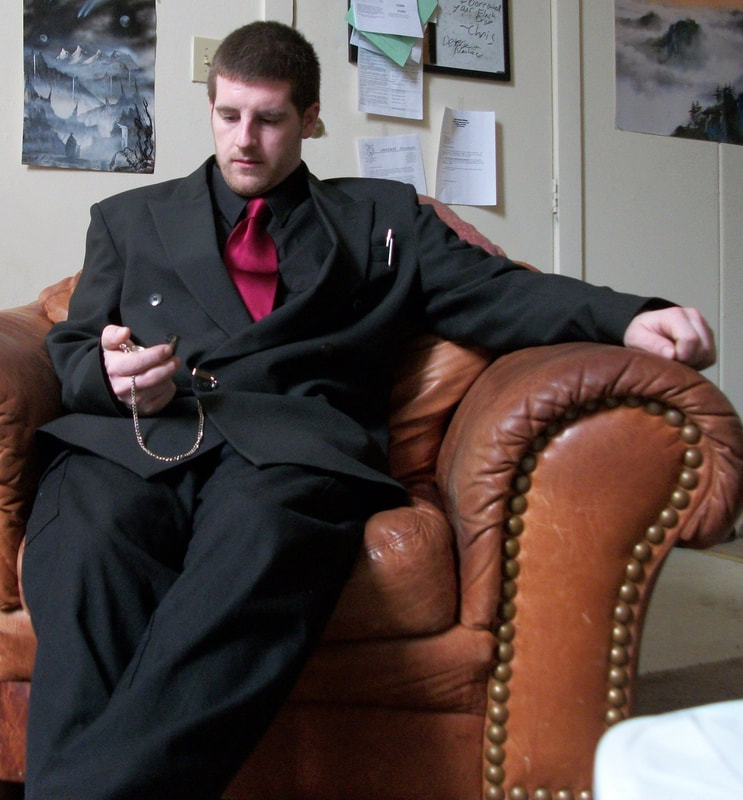|
The first few things I would want to affirm will be fairly straightforward, as I hold pretty orthodox views on the basics of Christianity. These are things that, for the most part, are not really contested within Christianity, and I would go so far as to say that these cannot be laid aside without abandoning Christianity. As such, I'm just going to toss all of these into one post and then focus on more secondary and/or controversial topics for the remainder of the series.
The Christian faith stands or falls on the resurrection of Christ, and this is where I started when I began my deconstruction phase. I did not consider anything short of a literal, physical resurrection from the dead to be acceptable; if Christ was dead, or never existed, then I was prepared to throw the whole religion out as baseless and false. If Christ did not exist, then all of Christianity is built on a lie; if He died and stayed dead, He failed to prove Himself to be God in flesh, and therefore Christianity is built on a lie. A symbolic or metaphysical resurrection is not even worth considering, as it cannot be verified and means essentially nothing. I recently saw a tweet where someone asked, "if it was absolutely, undeniably, 100% demonstrated tomorrow that Christ was still dead in a grave, how would that affect your faith?" and I read through response after response of people saying it wouldn't do anything to their faith. I don't know what their faith is, but it isn't the one Paul declared would be in vain if Christ had not been raised. I looked at the gospels as historical documents, because that's fundamentally what they claim to be. I could go into detail in another post, but I was convinced that they were faithful recollections of real events, with Luke and John having the most convincing lines of argument for me. Luke because of his research; the number of details that Luke includes that support his claim to be operating from eyewitness interviews was staggering. Luke stated outright that his goal was to ensure his reader(s) could have confidence in the teachings they've received, and he makes sure to name sources, include stories that other gospels didn't include that show Christ interacting with people beyond the disciples, provide geographic and cultural details that improve clarity, and (as he continues into Acts) distinguish between the things he personally witnessed and the things he didn't. John stood out to me for his honesty and intimate familiarity with the story, how he really turns his focus to who Christ is and lets the person of Jesus stand out on the page even more than the specific things Jesus did or what order exactly He did them. The bit where John and Peter run to the tomb and John is the only writer who records that, well actually, he won that race, but that's an aside; details like that drove home that this was a real person telling real stories about his own real experiences, show a bit of the character of a man who wants to note that he ran faster than his friend, but is willing to admit hesitance to actually enter the tomb. Incidentally, and this isn't a core doctrine, it's just a side note here, but John is also why I believe in a very early dating of the gospels, which was important to my acceptance of their claims. There is no dispute among scholars, Christian or secular, that John was written after the synoptic gospels, and almost certainly after Acts. Everyone agrees that John wrote last. A great many people, however, put John after 70 ad, and I don't. My reason isn't historical or based on any specific papyrus or anything--so take it how you will--but rather it's literary. As a writer, I am struck by the fact that John has no apparent sense of dramatic tension. He shows throughout his writings that he is a writer who cannot allude to something and then wait to reveal what he's alluded to. Consider this segment of John 2: The Jews then said to Him, "What sign do You show us as your authority for doing these things?" Jesus answered them, "Destroy this temple, and in three days I will raise it up." The Jews then said, "It took forty-six years to build this temple, and will You raise it up in three days?" But He was speaking of the temple of His body. So when He was raised from the dead, His disciples remembered that He said this; and they believed the Scripture and the word which Jesus had spoken. |
The Living Word | |
|
First, that God is three eternal persons. He is not three separate beings, and He is not one person presenting in three ways. Christ affirms God the Father as the creator of all things, prays to Him as the Eternal Source, follows His leading as the Great High King, speaks His words as the Author of all things, and points to Him as the Ultimate Glory. It is the Father who holds the ultimate right to determine and deliver judgment, who welcomes us as His children, who we come to know in salvation, and who we will ultimately glorify for all eternity. Christ declares Himself to be God the Son, the speaker of the Father's words, the enacter of the Father's will, and the one true means of access to the Father. Christ promises the arrival of God the Spirit, the One who delivers truth, the catalyst that unites the body of Christ, and the source that empowers the work of salvation in the life of the Christian and the church. Second, that mankind is severed from our proper relationship with the Father, enslaved to sin and unable to reunite ourselves to Him. Mankind, created to serve as image-bearers of God, instead serve from the womb as image-bearers of fallen Adam. God is making all things new, and our only hope to be reunited with Him is to be made new as well. This new creation is only available through the work of Christ on our behalf, which begins immediately when we are adopted as sons and will be fully realized when Christ returns to deliver final judgment on the world and completes the great work of redemption. |
God as Judge
Abraham calls God "the Judge of all the world," and rightly so. But which person of the Godhead sits as judge? In John 5:22, Christ declares that the Father is not the Judge, but has given that function to Christ. But in John 8:15, Jesus says He judges no one, and 1 John 2:1-2 describes Christ as our advocate standing before the Father, who is presumably (given the nature of an advocate) sitting in judgment. Within parables, the role of judgment is carried out variably by characters who represent either the Father or the Son. Consider what Jesus says later in John 5. In verse 30, Jesus says that He does nothing without direction from the Father, including judgment. I present this, and my statement above about the function of the Son, as the unifying theme; God the Son reveals the just will of the Father (the declaration of the Judge's ruling) and realizes the material truth of that just will by bearing the full weight of the Father's judgment on the cross and standing before the Father to plead the application of His work to our case as Advocate. That is, all ultimate judgment finds its origin in the Father and its expression in the Son. |
These, I believe, are the basics of the Christian faith. Everything else stems from them or explains them in more detail. All our models, all our atonement theories, all our theological frameworks and terminology find their soul here. Here we have creation, fall, and redemption; here we have God and man and our need for Him and His love for us. Here we have the Bible, in which God the Son reveals God and ourselves and what God has done and how we respond to that work, which can have no falsehood without sacrificing its essential purpose. In these things we must have unity and unwavering adherence; any deviation from this, any different Christ, any other gospel, any allegiance placed equal or higher than God, any ultimate source of truth other than the Father revealed through the Son through the lens provided by the Holy Spirit, is not Christianity. It may share many things with us, but it is not of us.
Understand, it isn't that running for office is a bad thing, it's that my heart wants it for bad reasons. If I go into politics, I can let myself believe that I'm saving the world and doing it my way. But ministry, which I have been called to, doesn't allow that. Ministry has a knack for reminding people that we are just servants participating in God's work, and his plans are far better than ours. When I am fighting off the temptation to turn astray from my calling to pursue public office, I am fighting off a very direct idol of self and trying to reject following and trusting God. This will look different for all of us, but we must not give in to whatever it is that pulls our affection away.
| I came close once. In the 2010 election cycle I went so far as to request the necessary paperwork to run for office and started filling it out and collecting signatures. I was registered as a Republican instead of a third party specifically so I could get some money from someone to fund the campaign. I went to dinner with this one girl and it came up that her dad was a liberal third party candidate for the same office I was trying to run for (Massachusetts 1st District, U.S. House of Representatives) and she never spoke to me again. I was pretty serious about it, and it seemed like a good idea at the time. But something started to nag at me that had been on my mind for about a year already. |
I never turned the paperwork in.
Now my friend and I have joked about the fact that, afterward, there were emails about that sermon. I got emails about that sermon. He got emails about that sermon. These were not terribly encouraging emails. I haven't been back to his church. The real reason is that my family moved two hours away and I got pretty busy with another church so the opportunity just hasn't been there as much, but when we ran into each other at the Small Town Summit I joked that it was because of the emails we got from that sermon. My pastor sat in on the sermon and when he heard about the emails he told my friend that he wasn't really surprised. It truly is an act of grace that my pastor let me preach at our church after that.
But in one of those emails, a member of his church asked me what he seemed to think would be a gotcha question. "If you knew that being elected would ensure that you could stop abortion right now," he asked, "and save the lives of so many precious little ones, would you do it?" He was trying to get me to confess to a certain reliance on political power that I had condemned in the sermon, and oh, how tempting that question was. Not only because I am pro-life, but ever since the 2016 election I had been struggling even more with the temptation to get elected and burn the whole system down from inside. This guy was pushing exactly the right button, and I realized it wasn't an accident. So I prayed before I replied.
"I would not run," I answered. "Not because I do not value that cause, because I do value it; but because God has called me to a different path and I would rather turn down a great work than refuse that which God has commanded." I hit send and never heard from that guy again. And that moment has given me great comfort ever since.
When people ask me why I feel called to serve in full-time ministry I usually tell them that God has told us as much, and has confirmed that calling multiple times. What I don't mention as often is that He has also made it very clear that I don't belong anywhere else. Any time I go off and start trying to make my own plans and serve my own interest about things that I think will make me feel important and powerful and successful at forging my own path and saving the world because obviously I'm really equipped to be the savior of the world, He makes me choose. And each time, I have to stop and look at the door I'm trying to force open and be reminded of the one He's put my name on, and I have to let go.
And it gets easier. There are things I still struggle with and I'm sure there always will be, but they're diminishing and changing. As I have matured and grounded my joy on Christ more, I have found myself pushing off in my own direction less often. Because in the end, none of my attempts to make my life work by my rules ever brought me lasting joy or peace. Just look at the rest of the posts in this series and see a sampling of the pain I've endured and inflicted on others through my quest for self-fulfillment. When I serve me first, I can drift off into becoming a true monster, and it isn't worth it. Are you any different, really? Does your idolatry of self improve your life and soul and mind any more than mine has?
The Leader's Guide had us close the final session with Psalm 16, and while the whole psalm is worth consideration, I want to highlight two verses as I end my thoughts on this series.
I said to the LORD, "You are my Lord;
I have no good besides You."
...
You will make known to me the path of life;
In Your presence is fullness of joy;
In Your right hand there are pleasures forever.
Psalm 16:2, 11 (NASB)
The video narrator was the late Chuck Colson, who worked his way up to becoming a personal aide of President Nixon and was one of the people who went to prison in the wake of Watergate. He fits the mold of what we may most easily envision for someone who treats power as an idol: driven, quickly rising through the ranks of his chosen field, a known leader and power player on a stage few of us can ever manage to even reach. The questions, however, focused on helping us connect to Colson’s story to see how the idol of power can draw any of us. As Colson noted his youth during the Great Depression and his time in the Marines to be factors in how he viewed the world and himself, the provided questions encouraged us to look back at our past to see how it has impacted our present and the way we view ourselves and others. In response to that goal, and because this topic was so personally relevant, and to help clarify a different way this idol can manifest, I told my own story. Which went something like this:
I had a stubborn father who came from a stubborn family and the only options in that situation are to grow submissive or develop a habit of fighting. I went with the latter. While he still denies it, he also very openly invested in my brothers and their sports while only showing vague, if any, interest in my love of marching band and stage crew. I felt just as forgotten and overlooked as my city, and longed to have someone obsess about me the way I believed I saw him obsess over their cross country meets and baseball games. The combination of these things, a quick wit, and a natural bent toward charismatic leadership resulted in a very overt idol of power and my own clever use of people and situations to my own advantage; I especially sought respect and adoration from people I could control.
The thing is, I wasn’t driven. No one would describe me throughout my youth and early 20s as seeking after power or influence or position. I didn’t look like someone who worshiped power in those ways. What I became was someone who didn’t much care where I ended up, as long as I had manipulated my way there. I wanted to explore loopholes, control situations, make connections, and just freely breeze through life on a series of half efforts and adoring hangers-on. I acquired friends who would follow me, I manipulated people into getting into serious trouble for my own entertainment, and no matter how friendly I seemed while meeting them I instantly forgot anyone who I didn’t read as useful because they were beneath my notice. It was my ex-fiancee that set me on the path to breaking me of that. I’ve mentioned her before, how our relationship was deeply unhealthy and how one aspect of that was her desire to receive the kind of love she felt her life had been missing. The other side of it was my manipulation. Regardless of how much of it was intentional and how much wasn’t, what I actually did was break her down and try to remold her into what I wanted over the span of our entire relationship. My behavior toward her cannot be honestly described as anything but abusive. And when our relationship drove her to attempt suicide, I was forced to face the fact that I had done this. My elevation of self and power combined with her desire to be accepted by me sent us onto a path where she was addicted to the love I had for her and the only love I could offer was so corrupted it had nearly killed her.
But I was so deep into this idol that that still wasn’t enough. It wouldn’t be the first or last time she would make that attempt because of me, and in my attempts to fix things I took a path that still ended up with me controlling where things went and how she would be forced to recover, without receiving any input from her or granting her any power over what happened to our relationship. Rather than face what I’d done, I ran away, and over the course of the next year God beat me down over and over until the day came where I was truly alone for the first time. I had no car, no money, no prospects, and no friends or family close enough to come to my aid. And I was furious. It would end up being a seven hour walk back to my new apartment, and I began that walk demanding an answer from God about His treatment of me, raging at the heavens for the ways everything had fallen apart. During that walk, God finally had His opening to soften my heart and help me see what I had become and how hard He had been fighting for me. It was the summer of 2009, completely lost and alone walking along a road in western Massachusetts, that I finally gave up control of my own life and submitted myself to fully serve Christ. It would be years after leaving my home town before He had done enough work in my life that I could really be trusted with power again.
It was my responses to my environment that set the path to this idol, and the way I played out my worship of it was nearly invisible to everyone around me. Despite how I described it above, to everyone else it just looked like fun little anecdotes and a gift of leadership and a devoted, though deeply mentally ill, significant other. There are people who still, even after I’ve tried to explain how much of it was my fault, blame her and the illness they see in her as the cause of all the problems in our relationship. This idol was unseen to her, the woman closest to me, and she continued to blame herself for years after we last saw one another. It was unseen even to me; I honestly thought my hands were clean through all of it. Because the way I chased after it didn’t look like money and fame and promotions, it looked like a slacker just drifting through life and somehow always having someone to call to avoid the worst effects of the lifestyle.
What should stand out in my story to highlight the idol, and what occupied a large percentage of the discussion as guided by the Leader’s Guide for the session, is how people are treated and viewed. Whether this idol manifests as a drive for success that views people as competition to be crushed or surpassed, or an abusive desire to control those closest to us, or anything else that takes people and views them as something other than human beings with equal standing before God, this idol can usually be seen in the way we view our fellow human beings. Because, as image-bearers of God, how we view one another tells much of how we view Him. Is this not why Jesus said that that which we do to the least of these, we do to Him? The idol of power seeks not only power over situations, but over the course of our lives and everything around us. In some way or another, when this idol is seated in our hearts, our ultimate desire is to be like God in the same way that caused Satan to fall. And no matter how well we hide this desire, it will come out in how we view and treat our fellow image-bearers of God.
As we examine our hearts to find the idols that dwell there, let us also examine the burdens we carry from our youth and the way we interact with other people. When something unhealthy arises in these relationships, with the course of our lives or with others, it may very well be evidence of an idol hidden deep in ourselves that has remained hidden from even ourselves. We must be a people humble enough to let go of control, confess our sins, and submit to the lordship of Christ. Let us be a people marked by humility, confession, and a desire to make our God greater than ourselves in all things.
As Idleman has been saying throughout the series, the core issue is trusting in anything other than God to do what only God can fully do. It is trusting in anything other than God for our salvation, whether eternal or immediate. The idolatry of money looks like treating money as our functional purpose, our immediate savior, our great help in time of need. It looks like basing our identity on our net worth. My one friend back home, who lived in a lower-income part of town, showed this idolatry when he refused to let our friend from a nicer part of town enter his home for years because of what he assumed the higher class friend would think of him on seeing his house, just as surely as the 1% show it by flaunting their wealth.
It's so easy to fall prey to this one, far easier than we tend to acknowledge. After all, money goes a great distance in defining our daily lives. Study after study has shown that our income bracket has a direct impact on the economic and higher educational opportunities available to us, our access to healthcare, our mental state, our likelihood of crime and drug addiction (and the punishment when we're caught), and the quality of our public schools.* We are judged constantly on our income, inside and outside the church. I have been turned away from a preaching class hosted by my pastor because my two work incomes still weren't enough to get us off food stamps and I was deemed "worse than an unbeliever" and therefore unable to preach based on a particular, and I believe twisted, read of 1 Timothy 5:8. I've had disputes with people, Christians and non, about whether or not I was allowed to use those same food stamps to buy something nice for my family once in a while instead of just the bare minimum every meal. These are Christians defining their views on morality based on income (amusingly enough, these same Christians will condemn the prosperity gospel without ever apparently seeing the connection they have to it).
It's natural to want to avoid these things, we want to avoid being the ones who get judged and dismissed and ignored because of our socioeconomic class. I can tell you that living that life is not comfortable or enjoyable. And there's nothing wrong with wanting to give our families a better life, to oppose injustice, to engage with our culture in a different way. But what can happen is we can view the trials we face as being bigger than the God we claim to serve, and put the opinions of individuals and our culture above the view God has of us. And once we do this, once we allow ourselves to be defined by something other than our identity in Christ and rely on something other than God for our immediate salvation and hope, we have set up an idol.
Our self-examination on these issues needs to go beyond the obvious. We need to be willing to submit to actual scrutiny of our intentions, our desires, our hopes and fears. And whenever an idol is found hidden away in one of these corners, we need to have the humility to repent and hand its place over to God.
When everybody loves me |
The fact is that we were actually made to draw our value and significance from love, but can never find that need satisfied by the love fallen humans can offer. Because the love we can offer each other, even without the fall, was always meant to be a reflection of the true and greater love poured out on us by God. We cannot be for each other the kind of lover we truly need.
|
|
While each lesson has had a question or two that invite people to talk about how these idols have impacted their lives, this was the first week that had us go into smaller groups and really dig into a period of confession. Probably because these idols are some of the easiest to fall into, and to never notice, and to never have noticed by those in our church families. I mean, when do we really talk about sex? Based on the conversations we usually have at church and small groups, how would anyone know if we were struggling with this?
|
I acknowledged my sin to You, |
Abusive, and manipulative, and controlling idols of love have given us a false understanding of what it means to talk candidly about the things that hinder our walk. And works-based salvation models have made this problem worse. But if we will be vulnerable, and honest, before our God and our fellow members of the body, we can experience the freedom and relief that comes from a truly confessional life; marked not by a seeking after meaning and value in love, but by a comfortable recognition of the value we already have to the One who loved us first.
This week we discussed idols that fall under the broad category of pleasure. Most of the discussion centered around sex and food, but we did branch out to other things as they came up. One of the issues we talked about was the danger in trying to solve one's idolatry on one's own power; if we have made an idol out of food, for instance, we may try to solve it by going on a diet and exercising. But if that's all we do it's very likely we'll just set the exercising routine up as a new idol. The post-workout endorphin rush can be just as effective a god in our lives as the one that comes from eating to cope. There's a lot that can be said about this, but it's also true of basically all of the forms of idolatry that will be discussed in the series, so this week I want to focus on something that came up that was specific to the topic at hand.
See, our church is located in a town that has been significantly impacted by the opioid crisis. There's also a state college in town, with youth who have been exposed to addictive substances in their first outing away from home, and a not-insignificant level of poverty which tends to exist in the same space as various addictions. Between our food pantry, general outreach, and a growing number of members who live in the city, we interact with addiction. As such it was important for us to get this issue down.
How we view addiction will define how we treat addicts, and how we treat addicts impacts our ability to be effective witnesses of God's love to our communities. If we operate from the assumption that it is a moral or theological failing, we have a habit of being harsh and, in many cases, demanding change before they are welcome in our churches and outreaches--an approach that is not done in love or justified in scripture. So there is value in understanding the secular studies that have shown a medical aspect to addiction; however, if we hold only to that, and write all of the related symptoms off as always being addiction, we will never be able to recognize idolatry when it arises. We must help those who need help, support those who need support, and tear down false gods; and we must do so in a manner that always glorifies God and points our communities to Him in love.
We ultimately came to the conclusion that pleasure idolatry and addiction are broadly overlapping issues that may or may not arise in the same person, even with the same substance or practice, but are nevertheless distinct. That we need to get to know people well enough to be in a position to recognize the difference between a physical placebo and a spiritual one. Both addiction and idolatry need to be addressed, but in different ways, but in the end only Christ can cure either. We must put Him, and His guidance, first in all that we do.
Worship is something we do constantly and, in fact, cannot stop doing. Worship is the sum total of all the ways we organize our lives -- our schedules, our interests, our finances, our loves -- around the thing or things we believe will give our lives meaning, direction, and joy.
Active Idolatry |
|
Now, this is accurate. All of these things are idolatry (and I have, on more than one national holiday, gotten into some trouble for observing the ways in which this definition of idolatry seems to fit so well the way we treat our flag, and national anthem, and military/police, and nation, but that's something for another post), and should be recognized as such. We must acknowledge the ways that worship shapes our behavior and recognize where our gods are revealed. But I feel we don't always say clearly enough that idolatry is also passive.
Passive Idolatry |
|
What lies at the root of our goals and alliances? What is it we are ultimately trying to accomplish? We have to dig deep here. Sure, our reason for having a given job is to make money in order to meet our needs in order to survive, but is that it? Does it go deeper than that? What is it we intend to do with that life, with that money, with that title? See, if we don't go any deeper, if we let the question end at "I have a job so I can survive," then either we are using our survival as the ultimate governing principle or we are not allowing us to see what our ultimate governing principle actually is. Either way, any 'ultimate governing principle' in our lives functions as a god. It is the end to which we will devote our energy, our time, our resources, our gifts. It will be the final deciding factor in what jobs we take, what we do in our off hours, and how we view all of it. What is the purpose of our politics? Is it enough to want our country to look a certain way? I talked to a lot of one-issue voters in the last Presidential election, whether that one issue was opposing Trump or supporting a pro-life appointment to the Supreme Court or whatever else, in no case did any of them tell me their one issue was facilitating the spread of the gospel. It is possible the gospel was an underlying reason for their support of that one issue, but many of those cases gave me some amount of reason to doubt they were thinking that far ahead. The question was, in every case, what are you willing to sacrifice in order to see your one issue reached? What are you willing to accept as long as it comes with the promise of that one issue? The election cycle and the years that followed, I believe, show that we are willing to lay quite a lot at the altar of achieving our political ends.
We may not always be acting in a manner that directly interacts with our idol. We may not even really be thinking about our idol in a given moment. But we will fashion our lives and words and alliances in a way that draws us ever closer to what we believe our idol demands of us. We will give our idol priority in our schedule, in our relationships, and in our decision-making process. And that, even if not active in that moment, is part of worship. We need to ask ourselves occasionally, what is our ultimate governing principle? And whatever we say it is, do our lives actually reflect that? Because if they don't, then we're misleading ourselves about what our principle actually is.
|
By what standard do we judge others? Whether or not Christians should judge at all is not really the point here. What is the point is what standards people hold each other to. Think seriously about the criteria we use to gauge one another. Do we fundamentally look down on people in a different tax bracket as us, who vote different than us, whose family life is different than ours? Do we think a person's clothing or job title or race or address say everything we need to know about them?
|
|
To what do we give the right of judgment? What is it that we allow to measure the value of a human life? What is our standard of morality?
Archives
January 2023
September 2022
August 2022
June 2022
May 2022
April 2022
March 2022
January 2022
January 2021
August 2020
June 2020
February 2020
December 2019
November 2019
October 2019
July 2019
June 2019
May 2019
February 2019
December 2018
November 2018
October 2018
September 2018
Categories
All
1 Corinthians
1 John
1 Peter
1 Samuel
1 Thessalonians
1 Timothy
2 Corinthians
2 John
2 Peter
2 Thessalonians
2 Timothy
3 John
Acts
Addiction
Adoption
Allegiance
Apollos
Baptism
Baptist Faith And Message
Baptists
Bitterness
Book Review
Christ
Christian Living
Christian Nonviolence
Church Planting
Colossians
Communion
Community
Conference Recap
Conservative Resurgence
Deuteronomy
Didache
Discipleship
Ecclesiology
Ecumenism
Envy
Ephesians
Eschatology
Evangelism
Failure
False Teachers
Fundamentalist Takeover
Galatians
General Epistles
Genesis
George Herbert
Giving
Gods At War
God The Father
God The Son
Goliath
Gospel Of John
Gospel Of Matthew
Great Tribulation
Heaven
Hebrews
Hell
Heresy
History
Holy Spirit
Idolatry
Image Bearing
Image-bearing
Immigration
Inerrancy
Ireland
James
Jonathan Dymond
Jude
King David
Law
Love
Luke
Malachi
Millennium
Mission
Money
New England
Numbers
Pauline Epistles
Philemon
Philippians
Power
Pride
Psalms
Purity
Race
Rapture
Redemptive History
Rest
Resurrection
Revelation
Romans
Sabbath
Salvation
Sanctification
School
Scripture
Series Introduction
Sermon
Sex
Small Town Summits
Social Justice
Stanley E Porter
Statement Of Faith
Sufficiency
Testimony
The Good Place
Thomas Watson
Tithe
Titus
Trinity
Trust
Victory
Who Is Jesus
Works
Worship
Zechariah








 RSS Feed
RSS Feed
